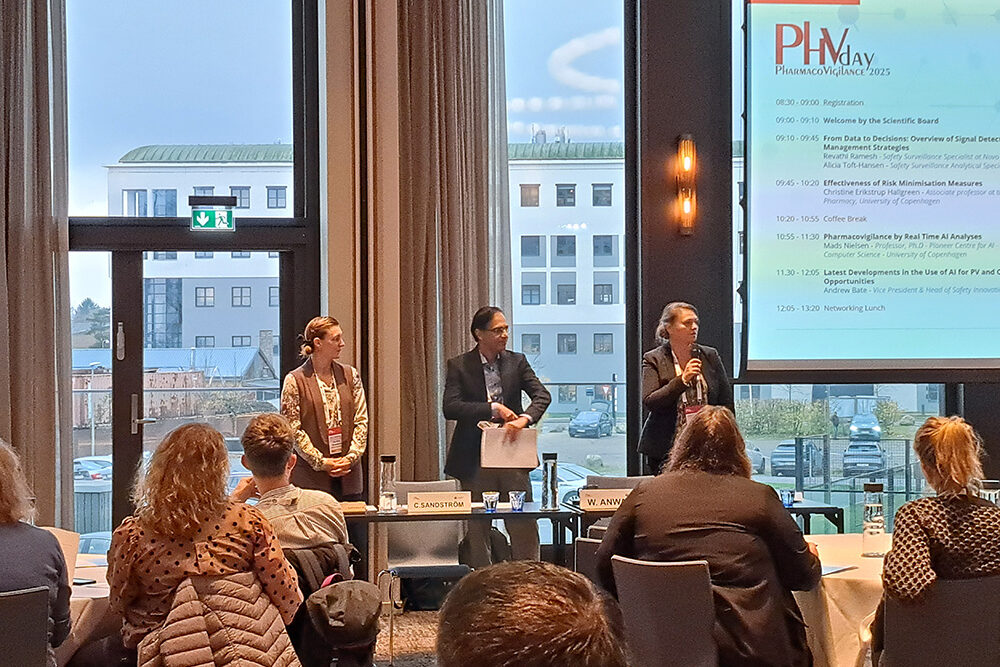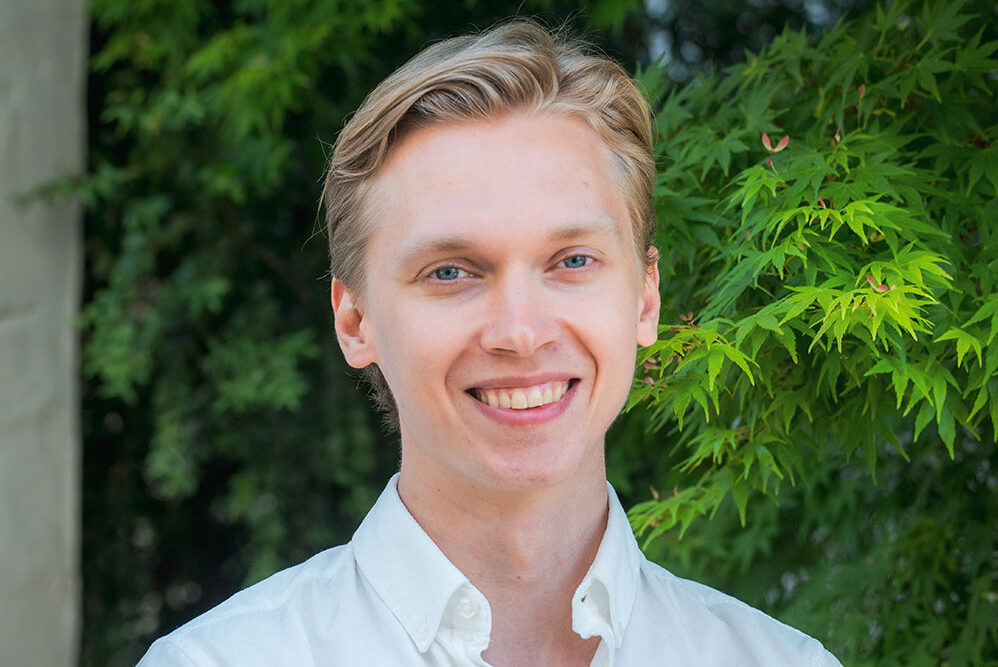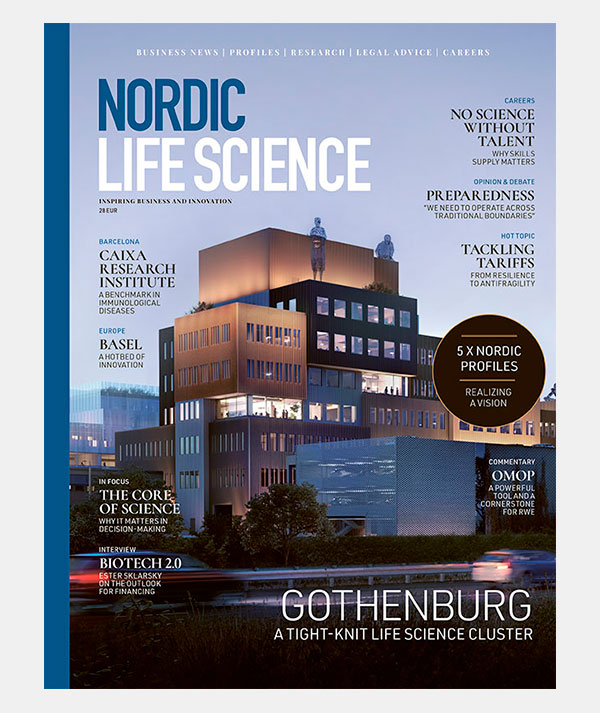Scientists as promoters of peace

With lack of diversity and cross-border collaborations, we not only lose out on innovation – we jeopardize our democracy and risk losing an important driving force in promoting peace.
In the Academic Freedom Index Update 2022, a collaborative effort between researchers at Friedrich-Alexander-Universität Erlangen-Nürnberg (FAU) and the V-Dem Institute, an overview of the state of academic freedom in 177 countries and territories is presented. Two concerning findings are highlighted, a substantial and statistically significant decline in academic freedom in 19 cases, accompanied by an accelerated and sustained wave of autocratization. As Lars Pelke from FAU emphasizes in his Commentary in NLS magazine No 01 2023, it is crucial that governments, academic institutions, and civil society organizations take steps to protect and promote academic freedom.

Academic freedom and its close links with democracy in Europe
Academic freedom is a necessary, if not sufficient, condition for open research and teaching, not only in the humanities and social sciences but also in the natural and life sciences.
The effects of the closing of borders on scientific progress was investigated in a study in Nature (Wagner et al., 2017). It was found that a measure of openness links to scientific recognition; countries with high researcher mobility get more recognition. They argued that international teams have a diversity of viewpoints, insights, and networks to draw on as they conduct and disseminate their research.
With a lack of diversity, we lose innovation. Integrated approaches sprung from diverse collaborations are also crucial for addressing key challenges, such as global health issues.
Imagine the climate change, the damage of the atmosphere does not stop at European borders, it is a worldwide challenge, where we must do everything possible together.”
“The international cooperation within Europe is very good and positive and many common projects across national borders exist. This must be kept and further extended, but we are not alone, we have neighbors. Imagine the climate change, the damage of the atmosphere does not stop at European borders, it is a worldwide challenge, where we must do everything possible together. This starts at a simple level of data exchange and goes up to measures to prevent CO2 emissions,” states Dr Hannes Jung, spokesperson of the Science4Peace Forum and Particle Physicist Emeritus at DESY (Deutsches Elektronen-Synchrotron), a German research center of the Helmholtz Association.
The Science4Peace Forum was founded in February 2022, after the Russian invasion of Ukraine. Its goal is international cooperation for peaceful purposes and for the benefit of humanity, describes Jung.
“With scientific cooperation and communication, better understanding in other areas also comes. Science can provide communication channels, where politics might fail,” says Jung.
Science works independently of political and ideological ideas, and scientific cooperation often helps to pave the road for diplomatic initiatives. As an example of these ideas, Jung mentions the European Organization for Nuclear Research (CERN) in Geneva, founded in the fall of 1954 by scientists whose countries were fighting against each other during World War II. It was important for the initiators to work together on fundamental physics issues, regardless of their political systems.
The whole validation of disarmament was based on developments scientists made together. For this to happen, exchange and good communication between scientists is necessary.”
“In order to find solutions to the immense challenges in fundamental physics, international exchange is necessary. No nation can cope with this alone,” he says.

During the cold war, the initiative to start freezing and then reducing nuclear weapons was initiated by scientists, continues Jung. “The whole validation of disarmament was based on developments scientists made together. For this to happen, exchange and good communication between scientists is necessary,” he emphasizes.
A third example is the SESAME (Synchrotron-light for Experimental Science and Applications in the Middle East) project, initiated at the end of the 1990s in Jordan.
“In this “CERN of the Middle East” scientists from Egypt, Bahrain, Iran, Israel, Jordan, Pakistan, the Palestinian Authority, as well as Turkey and Cyprus work together peacefully, although some of them are politically in conflict. This is how one gets to know other perspectives and this helps in mutual understanding,” says Jung.
Consequences from the war in Ukraine
After the Russian invasion of Ukraine in February 2022 many western science organizations and laboratories banned any institutional cooperation with Russian and Belarusian institutes. In some cases, even common publications and participation in common conferences were banned. This led to the founding of the Science4Peace Forum, describes Jung.
“The Science4Peace Forum was formed when a group of scientists from international research laboratories came together to protest against these unjustified and even counterproductive measures. Even one year after the war began, these measures are still in place, but the sanctions did not help to end this senseless killing of people,” he says.
The consequences of the sanctions in science are immense, he says. Long term cooperations, which started even during the cold war, are now put on ice. Scientists who worked in laboratories for fundamental research were sent back. For young students from Russia and Belarus, the possibilities to work in fundamental science are reduced, and many might face work for the military.
There were many scientists opposing the war against Ukraine. If cooperation no longer exists, these people have to go back and might face consequences. With the sanctions against institutes, these people are also punished, which is the opposite of what one should aim for.”
“But even more, trust is broken. If trust is broken, even after the war, it will take many years or even decades, to rebuild and reach a situation we had before the war,” says Jung. “There were many scientists opposing the war against Ukraine. If cooperation no longer exists, these people have to go back and might face consequences. With the sanctions against institutes, these people are also punished, which is the opposite of what one should aim for.”
Scientific progress will be also slowed down, and in some cases will be impossible, both in Russia and in Ukraine. When Russia annexed Crimea in 2014, collaboration between Ukrainian and Russian scientists became severed, resulting in the loss of research and scientific progress in a variety of disciplines. The conflict, for example, led to 18 universities relocating out of Luhansk and Donetsk to other parts of the country, with many researchers losing their homes and laboratories. In an article in Nature, 19 February 2022, several Ukrainian researchers say that the conflict with Russia will further hinder scientific progress,
“In climate research, one needs the data from all countries, for example from the area of permafrost. If that data cannot be exchanged, significant information is lost, which is not just an issue of science, but it is an issue for climate research, and in the end will affect us all,” says Jung.
The measures taken by some science organizations to ban scientific publications with Russian colleagues is against academic freedom, and should not be accepted, continues Jung. “It is very important, that science stays neutral and is not instrumentalized by political goals.”
It looks strange, that colleagues who worked together obtaining interesting scientific results suddenly become singled out, and for them, no affiliation is shown.”
In the big experiments at CERN, a discussion is ongoing about how to treat Russian and Belarusian colleagues. A proposal is on the table that their affiliation will be replaced by something very general, saying they belong to an institute which cooperates with CERN, explains Jung. “It looks strange, that colleagues who worked together obtaining interesting scientific results suddenly become singled out, and for them, no affiliation is shown. This looks pretty discriminatory, and is not in-line with the principals of good scientific praxis.”
More actual than ever
With the escalation in the war, the risk of a nuclear war or an accident in a nuclear power plant is increasing dramatically. The Science4Peace Forum has launched an appeal “No first use – never any use of nuclear weapons” with 14 Nobel Laureates as first signees. “We believe everything has to be done to stop the war now and to ban any use of nuclear weapons,” says Hannes Jung.
He also says that we must re-establish all scientific contacts and cooperation if we want to prevent a climate catastrophe.
“It is of enormous importance that peace initiatives, like the one against a nuclear war, are considered together with the global problem of climate change. Progress in reduction of CO2 emissions and reaching the 1.5 degree goal can only be achieved if the war is stopped and efforts are made on climate research.”
It is more important than ever to keep communication channels, where politics fails in diplomacy.”
Another global problem where efforts are needed is antimicrobial resistance (AMR). Bacteria does not travel with passports and the global scientific response to AMR must maintain and increase if we are to stop this “silent pandemic”.
“We can perhaps re-use the contacts and personal connections that we have built up in science over the past 50 years to re-establish communication channels which are broken now. It is more important than ever to keep communication channels, where politics fails in diplomacy,” concludes Jung.
This article was originally published in NLS magazine No 01 2023, and has been slightly updated.
Updated: January 30, 2025, 02:00 pm
Published: December 12, 2024












